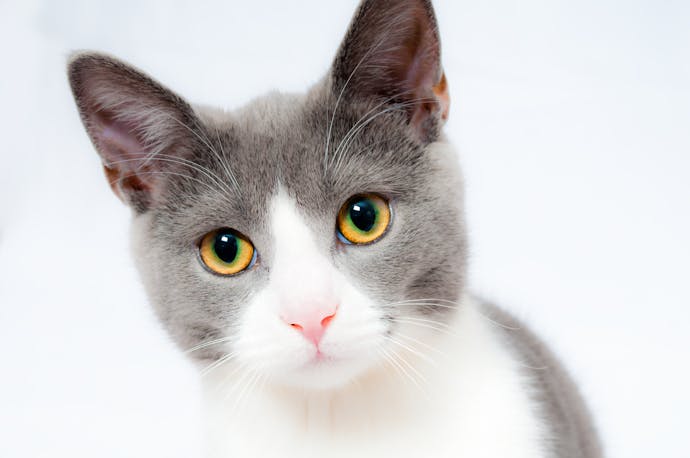When your cat gives you those pleading eyes during snack time, it’s tempting to share a bite of whatever you’re eating. If you’ve ever wondered, “Can cats eat Kraft cheese slices?” you’re not alone. Processed cheese may seem harmless, but is it a safe treat for your feline friend? Let’s break down the facts about Kraft cheese, processed cheese, and your cat’s health.
🧀 What Is Kraft Cheese Made Of?
Kraft cheese slices are a type of processed cheese, which means they aren’t 100% natural cheese. Instead, they are made with a combination of real cheese, milk, whey, emulsifiers, and preservatives. While this makes them creamy and easy to melt, it also means they contain added ingredients that your cat’s digestive system may not handle well.
Here’s a closer look at what’s in Kraft cheese slices:
- Milk and whey – sources of lactose
- Emulsifiers – for smooth texture
- Salt – in higher amounts than cats need
- Preservatives – like sorbic acid
- Artificial colors – for that bright yellow hue
While these ingredients are safe for humans in moderation, cats have different dietary needs. Let’s explore whether these components are safe for your furry companion.
🐾 Are Kraft Cheese Slices Safe for Cats?
The short answer is yes, Kraft cheese slices are not toxic to cats, but that doesn’t mean they’re healthy. Cats are obligate carnivores, which means their diet should consist primarily of meat. Processed foods like Kraft cheese don’t align with their nutritional needs and can even cause digestive upset.
Here are some reasons why Kraft cheese slices may not be the best choice for your cat:
- High lactose content – Many adult cats are lactose intolerant, and consuming dairy can lead to diarrhea or vomiting.
- Excess salt – Processed cheese contains more sodium than cats require, which can strain their kidneys.
- Additives and preservatives – These may not sit well with sensitive feline stomachs.
- Caloric density – Cheese is calorie-dense and could contribute to weight gain if fed frequently.
While a tiny nibble of Kraft cheese likely won’t harm your cat, it’s not an ideal or necessary part of their diet.
🚨 Symptoms to Watch for After Eating Cheese
If your cat sneaks a piece of Kraft cheese or you’ve fed them some, it’s important to monitor their reaction. Not all cats will have the same tolerance for dairy or processed foods. Here are some symptoms to watch for:
- Vomiting
- Diarrhea or loose stools
- Gas or bloating
- Lethargy
- Loss of appetite
If your cat shows any of these signs, consult your veterinarian. Severe symptoms like persistent vomiting or dehydration should be addressed immediately.
🍗 Healthier Treat Alternatives for Cats
Instead of sharing Kraft cheese slices, consider offering your cat safer and healthier treats. Cats enjoy snacks that are high in protein and free of additives. Here are some great alternatives:
- Cooked chicken or turkey – No seasoning, skin, or bones
- Plain, cooked fish – Like salmon or tuna (in moderation)
- Freeze-dried meat treats – Widely available at pet stores
- Commercial cat treats – Look for grain-free options with simple ingredients
- Small portions of plain, unsweetened yogurt – If your cat tolerates lactose
These options not only align with your cat’s nutritional needs but also avoid the potential risks associated with processed cheese.
🐱 Why Cats Crave Cheese
Even though cheese isn’t a natural part of a cat’s diet, many cats seem drawn to it. This can be due to the fat and protein content in dairy products, which mimics some of the nutrients found in their carnivorous diet. Additionally, the creamy texture and rich smell of cheese can make it irresistible to cats.
However, just because your cat likes the taste doesn’t mean it’s good for them. It’s important to prioritize their health over their cravings.
🩺 Vet-Approved Advice for Feeding Cats
If you’re considering adding any human food to your cat’s diet, it’s always best to consult a veterinarian first. Cats have unique dietary needs, and some foods that are safe for humans can be harmful to them. Here are a few tips to keep in mind:
- Always introduce new foods in small amounts to check for adverse reactions.
- Avoid foods high in salt, sugar, or artificial additives.
- Stick to treats that are less than 10% of your cat’s daily caloric intake.
- Provide fresh water at all times to support kidney health.
Remember, your vet is your best resource for advice on your cat’s diet and overall health.
FAQs
Q: Can cats eat Kraft cheese slices as a regular treat?
A: No, it’s best to avoid giving Kraft cheese slices regularly. They are high in lactose, salt, and preservatives, which aren’t suitable for cats.
Q: What should I do if my cat eats a lot of cheese?
A: Monitor your cat for symptoms like vomiting, diarrhea, or lethargy. If severe symptoms occur, contact your vet immediately.
Q: Are there any cheeses that are safer for cats?
A: Small amounts of plain, low-lactose cheeses like cheddar or mozzarella may be better tolerated, but they should still be given sparingly.
Q: Why is my cat obsessed with cheese?
A: Cats may be attracted to the fat and protein in cheese, but their nutritional needs are better met with meat-based treats.
Q: Can kittens have cheese?
A: Kittens may tolerate lactose better than adult cats, but it’s still not recommended to give them cheese due to the additives and high salt content in processed varieties.
References
Book a $49 online vet consultation at https://www.dialavet.com for fast, expert advice.








